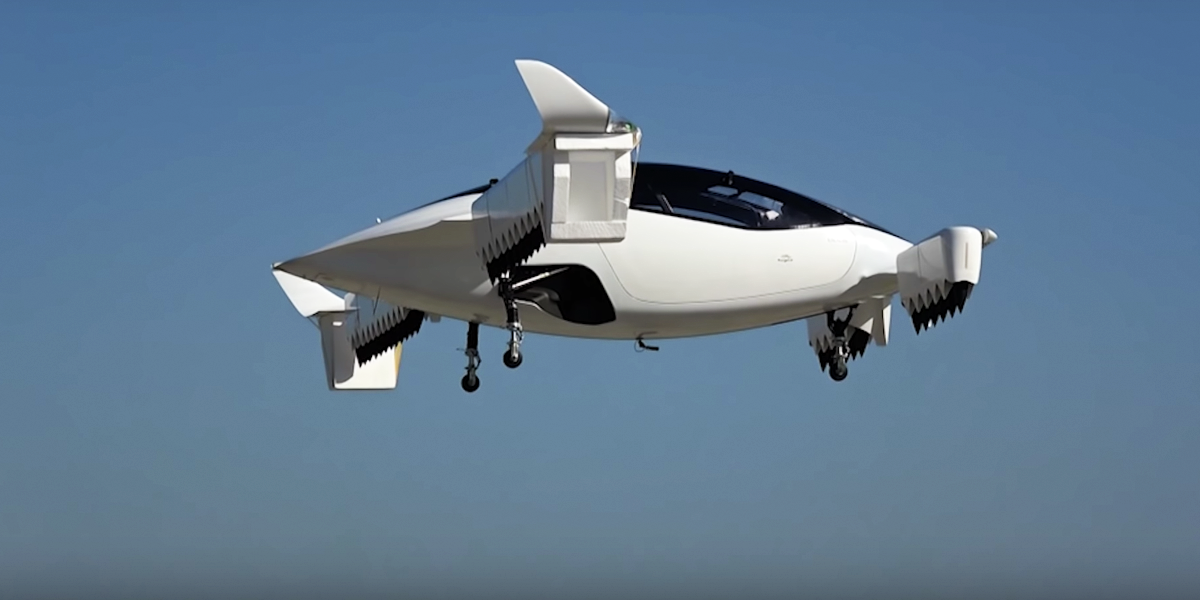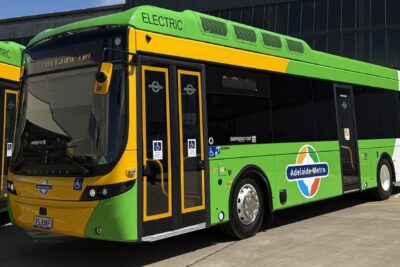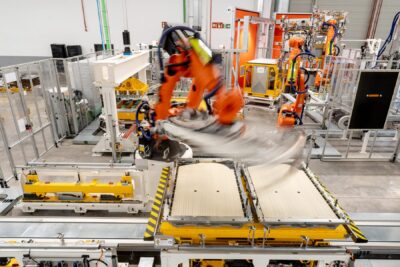Lilium’s five-seated air taxi completes maiden flight
Lilium has presented their new electrically powered flying taxi prototype for the first time, which is designed to carry five passengers. At the beginning of May, the team also completed its maiden flight with the new aircraft.
Lilium aims to position a fleet of electric aircraft in cities around the world offering a pay-per-ride service by 2025. The five-seater VTOLs used are planned to have 36 electric engines, be up to 300 km/h fast and feature a range of up to 300 kilometers. In Europe, the startup recently initiated the certification process for the new Lilium Jet. In addition, the USA, with its large number of helicopter landing pads and airfields, is regarded as a key market, which is why Lilium intends to gain a foothold there as well.
Until now Lilium was mostly known for its two-seater prototype, so the presentation of the five-seater variant was described by co-founder and boss Daniel Wiegand as follows: “Today we are taking another huge step towards making urban air mobility a reality. In less than two years we have been able to design, build and successfully fly an aircraft that will serve as our template for mass production. Moving from two to five seats was always our ambition as it enables us to open up the skies to many more travelers.”
Visually, the Lilium Jet stands out with a minimalist design without stern, rudder, propeller or gearbox. According to the Munich-based startup, this is possible due the aircraft’s fixed wing construction. “While drones consume a large part of their energy to stay in the air, the Lilium Jet benefits from the additional lift of its fixed wings. This means it requires less than ten percent of its maximum 2000 hp during cruise flight.” Thanks to this efficiency, the energy consumption of the Lilium Jet is equivalent to that of an electric car over the same distance.
On the maiden flight on 4 May at the test site of the company’s headquarters in Weßling, near Munich, it was further stated that the Lilium Jet had climbed into the air from the ground under remote control and would now undergo an extensive series of test flights. This is to lay the foundation for the certification of the aircraft. The next goal is to test transition flights, i.e. the smooth movement of the aircraft from vertical to horizontal flight. The maiden flight took place almost exactly two years after the first flight test of the two-seater Lilium aircraft.
In the meantime, Lilium has collected about 100 million dollars to finance its development activities. One of the donors is the Chinese Internet giant Tencent. By 2025, the company intends to operate its own Lilium Jet to set up an on-demand air taxi service that, thanks to a dense network of airfields in cities and regions, will guarantee flights “that are comparable in price with a taxi, yet four times faster“. According to Lilium, trial operations at several locations will begin before 2025.





1 Comment